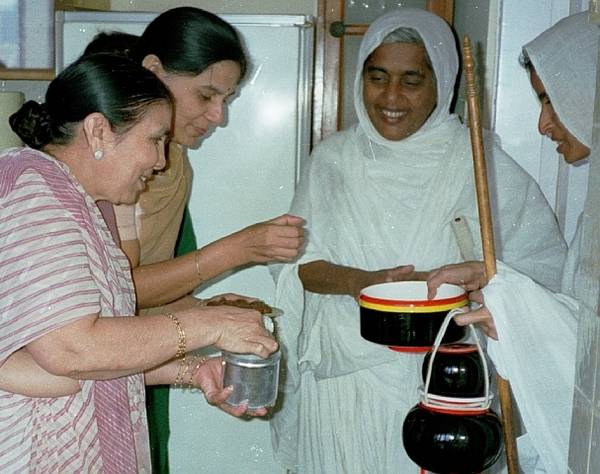The Tradition of Alms and Charity in Indian Culture

In India, the tradition of alms and charity has been an integral part of the social and religious fabric for centuries. Rooted deeply in spiritual beliefs, cultural norms, and the ancient philosophy of selfless giving, charity is seen not only as a social responsibility but also as a means to attain spiritual merit. The act of giving has been woven into daily life, forming the bedrock of communal harmony and individual fulfillment.
The Spiritual Foundation of Charity in Indian Culture
The practice of charity in India is primarily driven by religious and spiritual beliefs. Hinduism, Buddhism, Jainism, and Islam—India’s major religions—each emphasize the importance of giving. In Hinduism, the concept of dana (charity) is seen as a virtuous act that purifies the soul and leads to spiritual progress. The Bhagavad Gita, one of the most revered texts in Hindu philosophy, encourages selfless giving without attachment to the material results. Dharma—the moral order of the universe—suggests that helping others is a duty of every individual.
In Buddhism and Jainism, the act of giving, or dana in Buddhism and daan in Jainism, is seen as an essential practice for cultivating virtues such as compassion and kindness. Both religions view charity as a way to reduce attachment to material possessions and foster a sense of interconnectedness with all living beings.
Islam, too, places a strong emphasis on charity. One of the Five Pillars of Islam is zakat, the practice of giving a fixed portion of one’s wealth to the poor and needy, ensuring that wealth circulates and alleviates suffering in society. This form of charity is both a religious obligation and a moral duty, designed to promote social justice and equity.
Charity as an Expression of Social Responsibility
Beyond its spiritual significance, charity in India is also seen as a vital aspect of social responsibility. Almsgiving and charitable acts have long been part of Indian society, where wealthier individuals have a moral duty to help those in need. Historically, kings, rulers, and wealthy merchants contributed significantly to temples, schools, and public infrastructure, reinforcing the belief that society thrives when its wealth is shared.
In rural and urban communities alike, charity is often practiced through various forms such as food donations, free medical services, or support for the underprivileged. Alms are commonly distributed by individuals and institutions alike, with temples, gurudwaras (Sikh temples), and mosques playing a prominent role in organizing charitable activities. The offering of food, clothing, or money to the needy is often regarded as a way to accumulate spiritual merit and fulfill one’s duties toward society.
The Role of Religious Institutions in Charity
Religious institutions in India have historically served as the primary conduits for charitable acts. Temples, gurudwaras, and mosques across the country have long been involved in organizing almsgiving events, where free meals (often referred to as langar in Sikhism) are served to all visitors, irrespective of their caste, creed, or background. The tradition of the langar in Sikhism, established by Guru Nanak, is a prime example of selfless giving, where food is distributed to all, symbolizing equality and unity.
Similarly, Hindu temples often provide free meals (prasadam) to devotees and run hospitals, schools, and shelters for the underprivileged. Many temples also organize annual charity drives, collecting donations for social causes such as education, healthcare, and disaster relief. The role of religious institutions in charity reflects the deep connection between spirituality and social service in Indian culture.
Charity and Almsgiving in Contemporary India
In modern India, the practice of almsgiving has adapted to changing times, but its cultural significance remains strong. While traditional forms of charity, such as donations of food and money, continue, there has been a rise in more organized charitable initiatives. Non-governmental organizations (NGOs) and social enterprises have become key players in addressing issues such as hunger, education, healthcare, and environmental sustainability. These organizations often receive support from both individuals and corporations, reflecting a growing culture of philanthropy in the country.
The rise of digital platforms has also transformed the way charity is practiced in India. Online fundraising and crowdfunding have become popular methods for individuals and groups to raise money for various causes. Social media platforms play an important role in spreading awareness about charitable initiatives, mobilizing communities, and encouraging greater participation in charitable activities.
The Cultural Significance of Giving
Almsgiving in India is not just about material assistance; it is deeply rooted in the cultural ethos of hospitality and community welfare. In many parts of India, offering food, shelter, and support to guests or strangers is seen as an essential practice of kindness and respect. Charity is viewed as a way to create bonds of goodwill and strengthen the social fabric. For many, giving is also a way to seek blessings from the divine, as it is believed that acts of kindness lead to spiritual rewards and inner peace.
Moreover, charity is closely linked with the idea of seva (selfless service) in India, which is seen as a pathway to personal growth and spiritual enlightenment. Whether it is volunteering in a local community or donating to a cause, seva is an important part of Indian culture, and charitable acts are often perceived as a form of worship.
Conclusion
The tradition of alms and charity in Indian culture is deeply intertwined with the country’s spiritual, social, and cultural values. From ancient religious practices to modern philanthropic endeavors, charity has remained a vital part of India’s identity. It is a reflection of the Indian ethos of compassion, generosity, and social responsibility. In a world facing numerous challenges, the continued practice of charity in India serves as a reminder of the power of giving to transform lives and build stronger, more inclusive communities. Through charity, individuals and societies continue to honor their cultural heritage while fostering a spirit of care, unity, and compassion.










